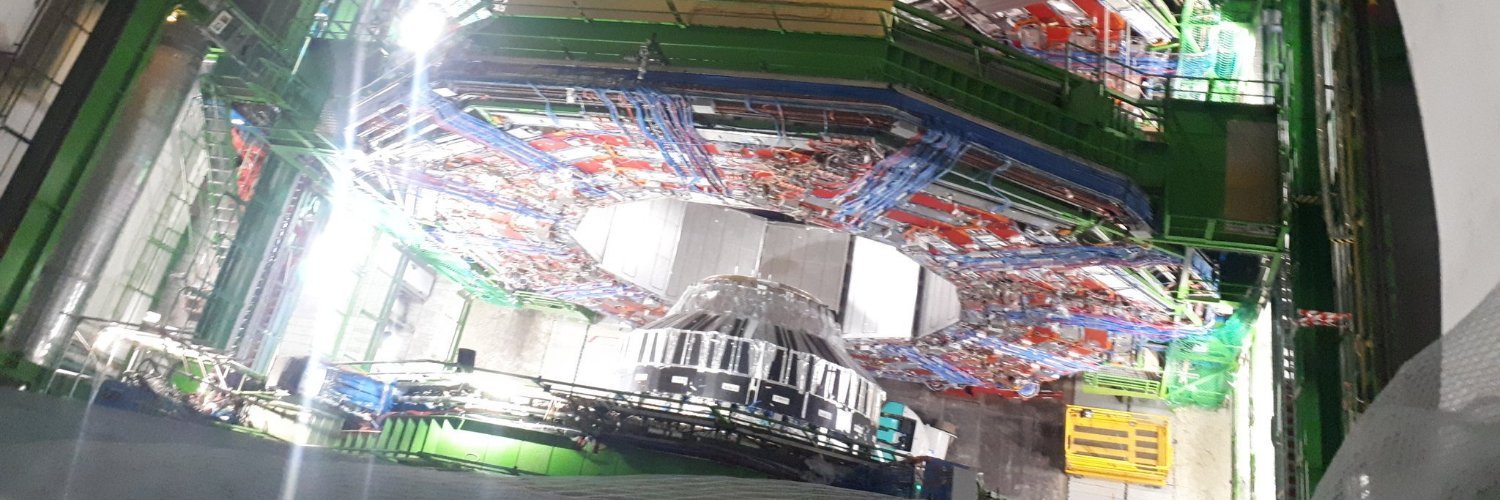 Steven Lowette
Steven Lowette
 Steven Lowette
Steven Lowette
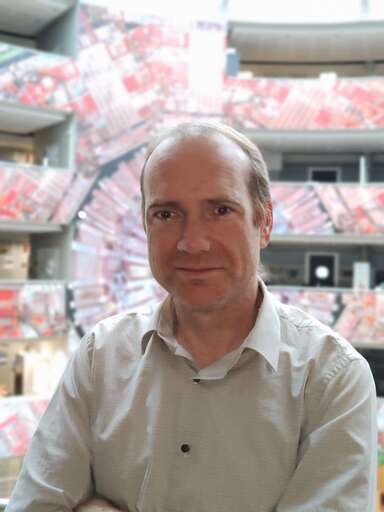
I am a research professor (ZAP-BOF hoogleraar) at the Vrije Universiteit Brussel (VUB), in Belgium, and also Corresponding Associate at CERN (Jan-Apr 2025).
I work at the Interuniversity Institute for High Energies (IIHE), a joint institute between the VUB and ULB universities.
My field of research is experimental high-energy physics. I am since long a member of the CMS experiment at the LHC collider at the CERN laboratory near Geneva, Switzerland. Since a few years I also joined the milliQan experiment.
With my research, I've built expertise in supersymmetry, dark matter and exotic long-lived particles. Through numerous searches for new physics, I explore nature at its smallest scales, thrilled by the possibility to find something new, something unexpected, something that teaches us more about the universe we live in.
Since the start of the LHC, I have also developed a passion for detector instrumentation and operation. The detectors we use are our doorway to in-depth understanding of the data, our foundation for complex but robust precision measurements and searches for unexpected new physics. I'm a long-time contributor to the impressive current CMS silicon strip tracker, and the upcoming next-generation silicon outer tracker. A significant part of the latter will be constructed in the IIHE labs.
Via the menu on the right, you may find more info about my research, my team, my teaching, my outreach, and myself.
| Postal address: | Vrije Universiteit Brussel Dienst ELEM Pleinlaan 2 1050 Brussel Belgium |
| Office IIHE: | G.0.13 |
| Office CERN: | 40/4-B24 |
| Phone: | (+32) 2 629 32 18 |
| E-mail: | steven.lowette@cern.ch
steven.lowette@vub.be |
| Bluesky: | @stevenlowette.bsky.social |
| Also on Skype and Strava. | |
If you're a student looking for a topic for a bachelor or master thesis at the VUB, take a look at this 2-slide presentation from the 2023 student welcome moment.
The topics presented are either in data analysis (the CMS experiment, next year also milliQan) or in instrumentation (both CMS tracker upgrade and milliQan). To get a better idea of what that can mean, check out current and past examples of subjects, or get in contact.
I teach several courses at VUB in the bachelor Fysica en Sterrekunde and in the English-taught master Physics and Astrophysics.
Currently I'm responsible for these courses:
I am a professor and researcher at the Vrije Universiteit Brussel (VUB), in the joint Inter-university Institute for High Energies (IIHE). My field of research is experimental particle physics, where I'm working on the CMS experiment and the milliQan experiment at the LHC collider at the CERN laboratory near Geneva, Switzerland.
I built my research career within the CMS experiment. That umbrella hosts a very rich diversity in research subjects I was active in over the years. On the data analysis side, I have evolved from top and Higgs physics and b-quark tagging in my PhD thesis, to a career concentrated on the search for new particles beyond our current theories: supersymmetry, dark matter, and long-lived exotics.
Currently, I'm working with my team on various searches:
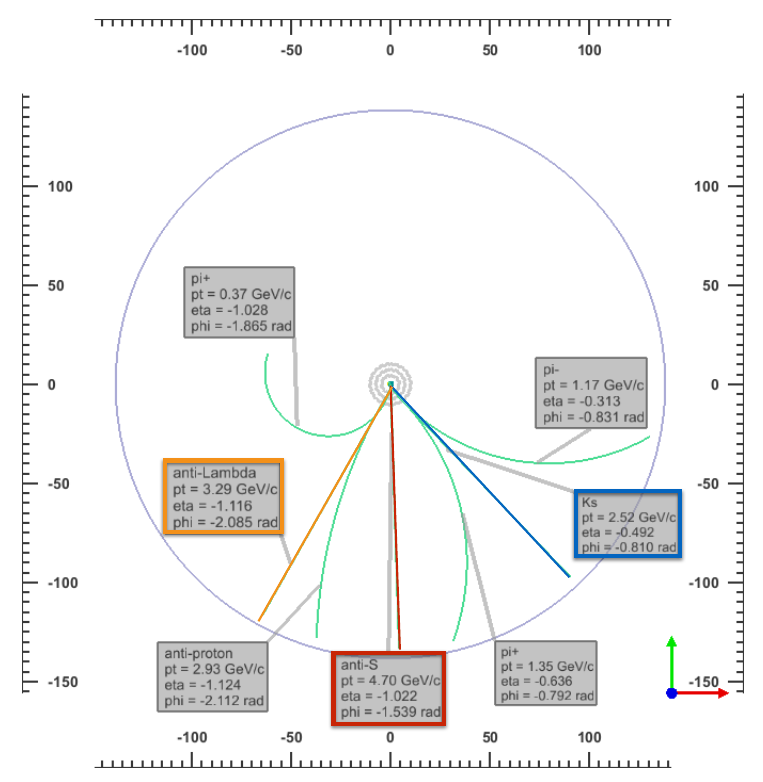
My leadership roles in and beyond CMS over the past years:
My recent relevant publications from CMS data analysis:
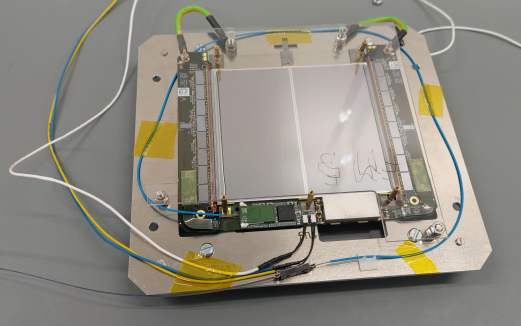
I have a long-standing involvement in the CMS tracker, from instrumentation over detector operations, to data performance, which I have often linked to my data analysis topics. During the LHC startup, I served as a detector expert at the CMS site before and during the startup of the LHC. Once in Brussels, I supported many students to take up detector operation roles for periods of time, as well as offline tasks in data quality monitoring and calibrations. From 2015 onwards, I also started first activities in Brussels towards the CMS tracker upgrade, a very ambitious project where we engaged as well in data acquisition and electronics as towards eventual construction of one of the CMS endcaps by all Belgian teams.
Since then, we achieved a multitude of milestones towards this biggest ever detector construction challenge in Belgium. We now routinely assemble fully functional detector modules, integrating all hyper-sensitive pieces of detector, electronics, mechanics, etc. One of my students also received a CMS Detector Award in 2018 for his outstanding contributions in the area of the data acquisition development and testing of electronics.
In the image, you can see a picture of a prototype tracker module assembled in Brussels. It is connected to high- and low-voltage power, and optical readout. Such modules are now routinely used in beam tests at other labs, but also by our own students for a various calibration studies.
Some recent publications from the CMS tracker side:
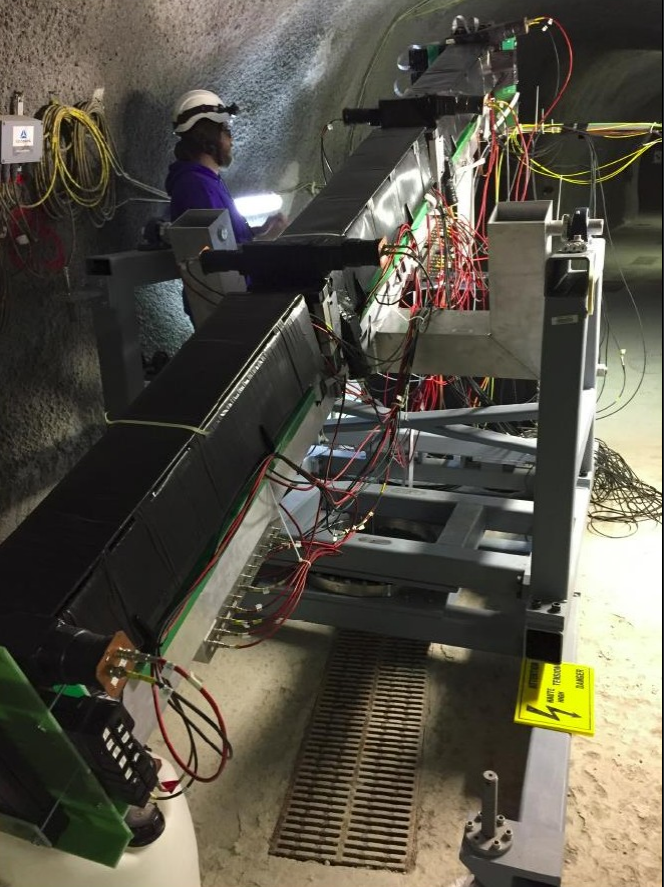
The milliQan experiment is a small-scale array of bar-shaped scintillators read out by photo-multipliers, located in a small tunnel above the CMS experiment. Its goal is to search for particles of electric charge well below the electron charge e, being produced in the CMS interaction region and penetrating the many meters of rock that shield the detector from the large backgrounds that are present in and around CMS.
Early 2019, I joined the milliQan experiment, expanding my search interests in long-lived particles beyond CMS. At that time, a prototype detector (see picture) had taken data, published since, and plans started to be made towards construction of a more complete detector. Since 2021, a postdoc joined me partly on milliQan, and he has since taken part in the assembly at CERN of the detector that is now near completion. milliQan is now ready to start uninterrupted data taking during the LHC operations in 2023 and beyond, in search for signs of elusive low-charge particles.
Relevant publications so far:
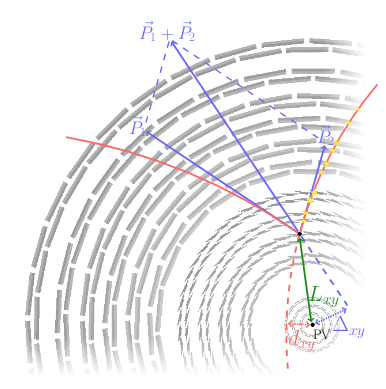
At times, I also opportunistically work on projects that have a more phenomenological connection, outside of the direct experimental realm. The topics are diverse, as are the author teams. Most recently, I wrote a pedagogical review article on the subject of long-lived particle searches at the LHC.
My most relevant publications of phenomenological nature:
| since 2022 | Martin Delcourt | FWO postdoc on the CMS tracker upgrade, in particular regarding joing CMS-MUonE beam tests; current convener of the CMS Strip Tracker Calibration and Local Reconstruction group. |
| since 2022 | Senne Van Putte | FWO IRI-supported postdoc on the CMS tracker upgrade. |
| since 2020 | Soumya Dansana (jointly with ULB) |
PhD student on CMS with focus on displaced exotic Higgs decays. Joint PhD with ULB (w. Prof. Clerbaux) |
| since 2023 | Jas Bierkens |
PhD student on CMS with focus on rare Higgs decays to final states with charmed mesons. |
| since 2024 | Kai Kang |
PhD student on CMS with focus on rare Higgs decays to final states with charmed mesons. |
| since 2024 | Tiepolo Wybouw |
PhD student on CMS and milliQan/Formosa searching for particles with small electric charge. |
| 2024-2025 | Yolan Vekemans | Master student on displaced exotic Higgs decays, in the ZH production channel |
| 2021-2024 | David Vannerom | FWO postdoc on CMS and milliQan; former convener of the CMS JetMET POG MET group and expert in anomalous ionization signatures. |
| 2020-2022 | Alexander Morton | |
| 2018-2020 | Simranjit Singh Chhibra | |
| 2016-2018 | Giannis Flouris | |
| 2013-2016 | Nadir Daci CMS Achievement Award 2016 |
| 2021-2024 | Wren Vetens |
PhD student at UWisconsin-Madison - supervision of search for sexaquarks with CMS data. |
| 2018-2023 | A.R. Sahasransu | Thesis: Triggering and Data Scouting on Compressed Dark Matter Models at the CMS Experiment |
| 2015-2020 | Jarne De Clercq | Thesis: The upgraded outer tracker for the CMS detector at the high-luminosity LHC, and search for composite standard model dark matter with CMS at the LHC CMS Detector Award 2018 and Solvay Award 2020 |
| 2015-2019 | David Vannerom (jointly with ULB) | Thesis: Search for new physics in the dark sector with the CMS detector |
| 2013-2018 | Isabelle De Bruyn | Thesis: Search for dark matter in the monojet and trackless jets final states with the CMS Detector at the LHC CMS Award 2016 |
| 2023-2024 | Fien Dewit | Thesis: Study of environmental radiation with plastic scintillators (w. Prof. Dobur and Dr. Skovpen at UGent) |
| 2022-2023 | Brent Danau | Thesis: The CMS tracker as an advanced lever to boost the search for sexaquarks |
| 2020-2021 | Caroline Bossuyt (UAntwerpen) | Thesis: A search for pair production of new light bosons through Higgs boson decay using muons and hadrons |
| 2019-2020 | Yens Elskens | Thesis: Background measurements for the milliQan experiment |
| 2017-2018 | Florian Partous | Thesis: The Standard Model strikes back: Searching for sexaquark dark matter at the LHC |
| 2017-2018 | Louis Dehennin | Thesis: Firmware Development And Characterization Of CMS Phase II Outer Tracker Prototype Modules |
| 2022-2023 | Ono Feyens | Thesis: Noise investigation on 2S modules for the CMS silicon outer tracker upgrade in preparation for HL-LHC |
| 2022-2023 | Ruben Dillemans | Thesis: PMT studies with milliQan detectors |
| 2021-2022 | Alwia Badridin | Thesis: Noise measurement: CMS silicon strip detectyor phase-2 upgrade |
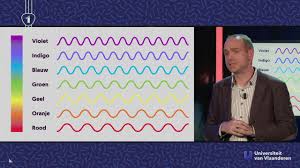
I love the scientific journey and discovering how nature functions. And I really enjoy sharing this passion also to a broader community.
Do not hesitate to contact me in case you have some event where you would like to hear about particle physics.
Below is a list of my public engagement activities (mostly in Dutch).
A very concise version of my career path:
Here's a list of some other academic activities:
I'm a regular speaker at conferences, workshops, and seminars on my research. I've also been a reviewer for the JHEP, EPJC, PLB, and IJMPA journals, as well for a variety of grant proposals. I've served on a multitude of Belgian and international thesis juries. Within VUB, I am or have been member of various committees, most notably the central research council (2019-2021) and the president/secretary of the examination committee VUB Bachelor/Master in physics and astronomy (2019-2021).